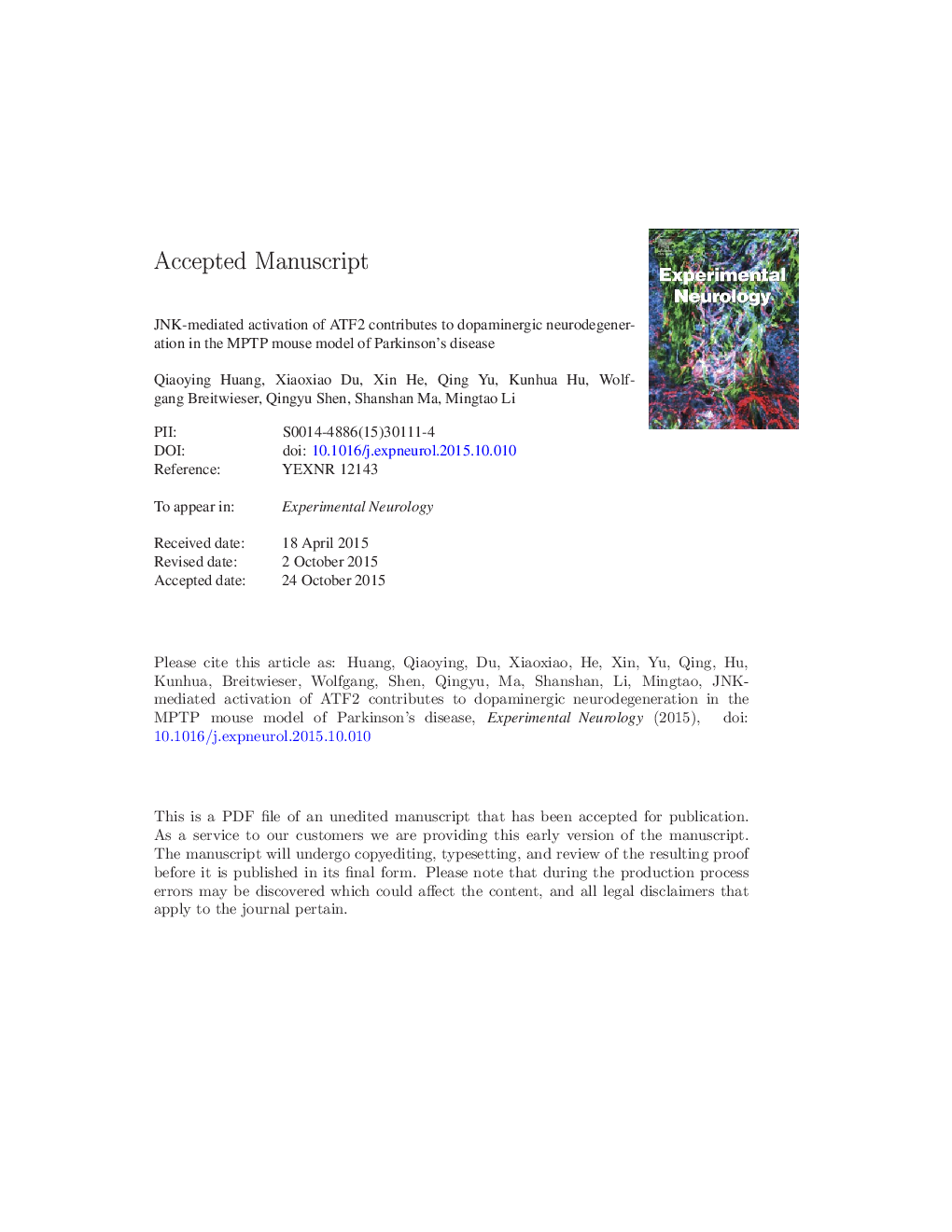| Article ID | Journal | Published Year | Pages | File Type |
|---|---|---|---|---|
| 6017178 | Experimental Neurology | 2016 | 31 Pages |
Abstract
The c-Jun N-terminal kinase (JNK)/c-Jun pathway is a known critical regulator of dopaminergic neuronal death in Parkinson's disease (PD) and is considered a potential target for neuroprotective therapy. However, whether JNK is activated within dopaminergic neurons remains controversial, and whether JNK acts through downstream effectors other than c-Jun to promote dopaminergic neuronal death remains unclear. In this study, we confirm that JNK but not p38 is activated in dopaminergic neurons after 1-methyl-4-phenyl-1,2,3,6-tetrahydropyridine (MPTP)-intoxication. Furthermore, within the dopaminergic neurons of the substantia nigra in MPTP-treated mice, JNK2/3 phosphorylates threonine 69 (Thr69) of Activating transcription factor-2 (ATF2), a transcription factor of the ATF/CREB family, whereas the phosphorylation of Thr71 is constitutive and remains unchanged. The increased phosphorylation of ATF2 on Thr69 by JNK in the MPTP mouse model suggests a functional relationship between the transcriptional activation of ATF2 and dopaminergic neuron death. By using dopaminergic neuron-specific conditional ATF2 mutant mice, we found that either partial or complete deletion of the ATF2 DNA-binding domain in dopaminergic neurons markedly alleviates the MPTP-induced dopaminergic neurodegeneration, indicating that the activation of ATF2 plays a detrimental role in neuropathogenesis in PD. Taken together, our findings demonstrate that JNK-mediated ATF2 activation contributes to dopaminergic neuronal death in an MPTP model of PD.
Related Topics
Life Sciences
Neuroscience
Neurology
Authors
Qiaoying Huang, Xiaoxiao Du, Xin He, Qing Yu, Kunhua Hu, Wolfgang Breitwieser, Qingyu Shen, Shanshan Ma, Mingtao Li,
